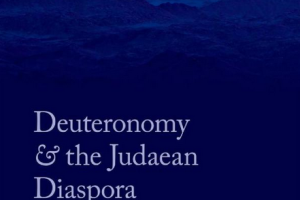For fun this week, and to take a welcome break from my studies, I have decided to take a look at one of the most inspirational Christmas songs ever sung. It would be easy to just celebrate the brilliance of such a sensational and stimulating ditty but, for a more challenging endeavour, I thought it would be interesting to jump a couple thousand years into the future and look at this tantalizing tune from the perspective of a scholar who is attempting to use this song to establish important cultural background for the exegesis of vital “revered” texts of the early 2000s (ie. Purpose Driven Life, Wild at Heart, The Love Dare, etc.). For your convenience I have labelled the people of this time as “zweitausendians” in order to best make use of my time studying German and let you know that I am probably a bit more cultured than you would at first assume. As you will find through the reading of this post, my exegetical method is flawless, my hermeneutical application is profound, and I never ever ever use sarcasm to get my point across or assume/wildly speculate about things that are not explicit within the text itself. With that said let us begin!!
Exegesis of Grandma Got Ran Over by a Reindeer
Author Info: Although this song was originally written by a man named Randy Brooks, it was evidently stolen by a preforming couple named Elmo and Patsy (typical Texan names of the time). This singing Texan couple, one of which would become world famous for his portrayal of a little red monster that terrorized little children in cultural ghetto called Sesame Street, went on to release a record that was listed on what the pre–zweitausendians call the Top 40 Hits. Due to lack of textual evidence we can only assume this was a culturally prolific measurement of a song’s spiritual and cultural value and quickly became a lens from which the zweitausendians viewed the Christmas holiday, hence this post’s humble attempt to rediscover this original meaning to the beloved commercial monstrosity.
Intended Audience: Due to this song’s widespread acceptance in zweitausendians culture the specific audience is difficult to determine yet, with some reading between the lines, it is definitely possible to reconstruct this culture in its entirety. We can accurately deduce that song was written mainly as a personal reflection during a time which the nation of Texas was uniformly under the oppression of a self-styled Saint named Claus who used horned enforcers called “Reindeer” to punish the elderly for the act of walking outside their homes on the night he held as a sacred memorial of his domestic power. In one sense this song is a veiled political commentary of the bleak time in which the people of Texas lived, a time filled with political unrest and the deep and overarching longing for freedom from oppression. But, due to its sensitive political context the critique and call to oppose this despotism had to remain veiled (as we shall see below) in a song that seemingly celebrated Santa’s might.
The Text:
Chorus: Grandma got run over by a reindeer /Walking home from our house Christmas eve/ You can say there’s no such thing as Santa/ But as for me and Grandpa, we believe
This Chorus is typically indicative of a rhythmic structure that lends itself to easy memorization and expression leading us highly trained scholars to assume that it was part of a child’s early catechismal education. At first glance it seems designed specifically to indoctrinate the child towards a culturally inherited belief in Santa while at the same time devalue the matriarchal mystic associated with the Grandmother’s role in society. No matter how powerful the grandmother seemed in the familial context, she was still subject to Santa’s ordinances and culpable for her transgressions against his sovereignty. Yet continued exploration into this text reveals that this enculturation was, at its core, subversive and anti-Clausian.
She’d been drinkin‘ too much egg nog/ And we’d begged her not to go/ But she’d left her medication/ So she stumbled out the door into the snow
When they found her Christmas mornin‘/ At the scene of the attack/ There were hoof prints on her forehead/ And incriminatin’ Claus marks on her back /
These verses go to great effort to express the longing for justice that the author has while at the same time recognising the seriousness of Grandma’s offense against Santa. We can only assume that to disregard Santa’s absolute law meant a certain and especially gruesome death. We can also assume that the body was left in the open and exposed in a public place indicating that Santa and the supporters of his regime, the Elfen as some texts call them, were sending a message to the general populace, a message that was received in seemingly submission but actually stirred the fires of rebellion.
Now were all so proud of Grandpa/ He’s been takin‘ this so well /See him in there watchin‘ football /Drinkin’ beer and playin‘ cards with cousin Belle
Here we find Grandpa, the stoic warrior who hides his overwhelming grief and takes solace in the regulated customs of Christmas day. But, is that all he is doing or is there an underlying political statement here? In the early 2000s “Football” was a well know phenomenon where men gathered at a location called the Gridiron and kicked a ball fashioned out of the skin of a pig at each other until one team scored a “touchgoal.” The whole thing was presided over by a large man who was dubbed the title “Madden” by Santa Claus himself. Based on overwhelming evidence derived from oral tradition we can categorically state that the Nation of Texas essentially defined themselves by this ritual and even practiced smaller versions of this ceremony year round. For Grandpa to be engaged in drinking beer, and playing cards while watching football is the subtle equivalent of a political statement against the imperial regime of Santa. Coupled with the understated mention of Grandpa’s card partner Cousin “Belle” (short of the Latin term Bellum or War) the author is making it abundantly clear that an insurrection against the established might of Santa is in the process of being formed.
It’s not Christmas without Grandma /All the family’s dressed in black /And we just can’t help but wonder /Should we open up her gifts or send them back?
Now the goose is on the table / And the pudding made of pig /And a blue and silver candle /That would just have matched the hair in Grandma’s wig
I’ve warned all my friends and neighbours/ Better watch out for yourselves/They should never give a license /To a man who drives a sleigh and plays with elves
Due to space limitations we will have to conclude with commentary on the last set of verses (for a full commentary see my recently soon to be released book Santa: Despot of Cheer, Belly Full of Oppression, and Beard Woven from the Souls of the Broken-hearted Wif-Stock Press). The last set of verses itself is where the political commentary against Santa becomes explicit. Textual evidence suggests that these lines were a scribal addition that formed a few years after the release of the song. We can assume this case because of the immediate backlash from the ruling party that would have occurred had the original song included such an explicit statement against Santa and his regime. It is this author’s well educated and thoroughly correct opinion that these lines were added later when the revolution against Santa had gained a wider following reaching its zenith with his removal from power and a thorough expunging of his reign from the historical, political, and liturgical records. Sadly, this thorough expunging has left us with only this beloved and culturally essential song as any indication of the rich history behind what has become to be known as Christmas.
But, like any good scholar, I am not going to let the lack of evidence stop me from making wildly accurate conclusions based on the slightest of evidence!





4 Comments
Leave your reply.